Sir William Strang G.C.M.G., K.C.B., M.B.E. (1893-1978) and Anthony Eden, 1st Earl of Avon, KG, MC, PC (1897-1977). The Most Distinguished Order of Saint Michael and Saint George, Knight Grand Cross (Civil) GCMG, comprising silver gilt and enamel badge of the Grand Cross and silver, silver gilt and enamel breast badge, by Garrard & Co Ltd, cased with sash ribbon and neck ribbons; together with a letter dated 25th May 1932 from John Simon of the Foreign Office informing Strang of his appointment of Companion of the Order; and a letter from Anthony Eden as Foreign Secretary dated 21st November 1943, informing Strang of his appointment to Knight Commander; Strang received the Class of Knight Grand Cross in 1950. After the First World War, in which he fought as an Officer in the Worcestershire Regiment, in 1919, he joined the Diplomatic Service and served at the British embassy in Belgrade from 1919 to 1922, at the Foreign Office from 1922 to 1930 and at the embassy in Moscow from 1930 to 1933. During his time in Moscow he played an important role in the Metro-Vickers engineers trial, in which six British engineers were accused of spying. He returned to the Foreign Office in 1933, and held office as head of the League of Nations section until 1937 and of the Central Department from 1937 to 1939. During the 1930s he was an adviser to the government at the major international meetings, and met Mussolini, Hitler and Stalin. He was a tacit opponent of appeasement, but always stayed loyal to the government. Strang was present at the major conferences between the Allied leaders during the Second World War. In 1943 Strang was appointed the British representative on the European Advisory Commission, with the rank of ambassador. The commission was established by the Allies to study the possible post-war political problems in Europe and make recommendation but was dissolved at the Potsdam Conference. In June 1945, Strang became political adviser to the Commander-in-Chief of British forces in Germany, Bernard Montgomery. Strang again returned to the Foreign Office in 1947 and served as Permanent Under-Secretary of State for the German section from 1947 to 1949 and as Permanent Under-Secretary of State for Foreign Affairs from 1949 to 1953. The six years Strang served as Permanent Under-Secretary of State saw the gradual recovery of Europe through the Marshall Plan, the establishment of the Western European Union and NATO and the breaking of the Berlin blockade. He retired from the Foreign Office in December 1953 due to ill health, following an incident where he fainted during Queen Elizabeth II's coronation ceremony at Westminster Abbey. While serving as an army captain, Strang was appointed a Member of the Order of the British Empire (MBE) in 1918. He was made a Companion of the Order of St Michael and St George (CMG) in 1932, a Companion of the Order of the Bath (CB) in 1939, a KCMG in 1943, a GCMG in 1950 and a KCB in 1953. In 1954, he was raised to the peerage as Baron Strang, of Stonesfield in the County of Oxford. He later served as a Deputy Speaker and Deputy Chairman of Committees in the House of Lords and as Convenor of the Crossbench Peers.
Sir William Strang G.C.M.G., K.C.B., M.B.E. (1893-1978) and Anthony Eden, 1st Earl of Avon, KG, MC, PC (1897-1977). The Most Distinguished Order of Saint Michael and Saint George, Knight Grand Cross (Civil) GCMG, comprising silver gilt and enamel badge of the Grand Cross and silver, silver gilt and enamel breast badge, by Garrard & Co Ltd, cased with sash ribbon and neck ribbons; together with a letter dated 25th May 1932 from John Simon of the Foreign Office informing Strang of his appointment of Companion of the Order; and a letter from Anthony Eden as Foreign Secretary dated 21st November 1943, informing Strang of his appointment to Knight Commander; Strang received the Class of Knight Grand Cross in 1950. After the First World War, in which he fought as an Officer in the Worcestershire Regiment, in 1919, he joined the Diplomatic Service and served at the British embassy in Belgrade from 1919 to 1922, at the Foreign Office from 1922 to 1930 and at the embassy in Moscow from 1930 to 1933. During his time in Moscow he played an important role in the Metro-Vickers engineers trial, in which six British engineers were accused of spying. He returned to the Foreign Office in 1933, and held office as head of the League of Nations section until 1937 and of the Central Department from 1937 to 1939. During the 1930s he was an adviser to the government at the major international meetings, and met Mussolini, Hitler and Stalin. He was a tacit opponent of appeasement, but always stayed loyal to the government. Strang was present at the major conferences between the Allied leaders during the Second World War. In 1943 Strang was appointed the British representative on the European Advisory Commission, with the rank of ambassador. The commission was established by the Allies to study the possible post-war political problems in Europe and make recommendation but was dissolved at the Potsdam Conference. In June 1945, Strang became political adviser to the Commander-in-Chief of British forces in Germany, Bernard Montgomery. Strang again returned to the Foreign Office in 1947 and served as Permanent Under-Secretary of State for the German section from 1947 to 1949 and as Permanent Under-Secretary of State for Foreign Affairs from 1949 to 1953. The six years Strang served as Permanent Under-Secretary of State saw the gradual recovery of Europe through the Marshall Plan, the establishment of the Western European Union and NATO and the breaking of the Berlin blockade. He retired from the Foreign Office in December 1953 due to ill health, following an incident where he fainted during Queen Elizabeth II's coronation ceremony at Westminster Abbey. While serving as an army captain, Strang was appointed a Member of the Order of the British Empire (MBE) in 1918. He was made a Companion of the Order of St Michael and St George (CMG) in 1932, a Companion of the Order of the Bath (CB) in 1939, a KCMG in 1943, a GCMG in 1950 and a KCB in 1953. In 1954, he was raised to the peerage as Baron Strang, of Stonesfield in the County of Oxford. He later served as a Deputy Speaker and Deputy Chairman of Committees in the House of Lords and as Convenor of the Crossbench Peers.
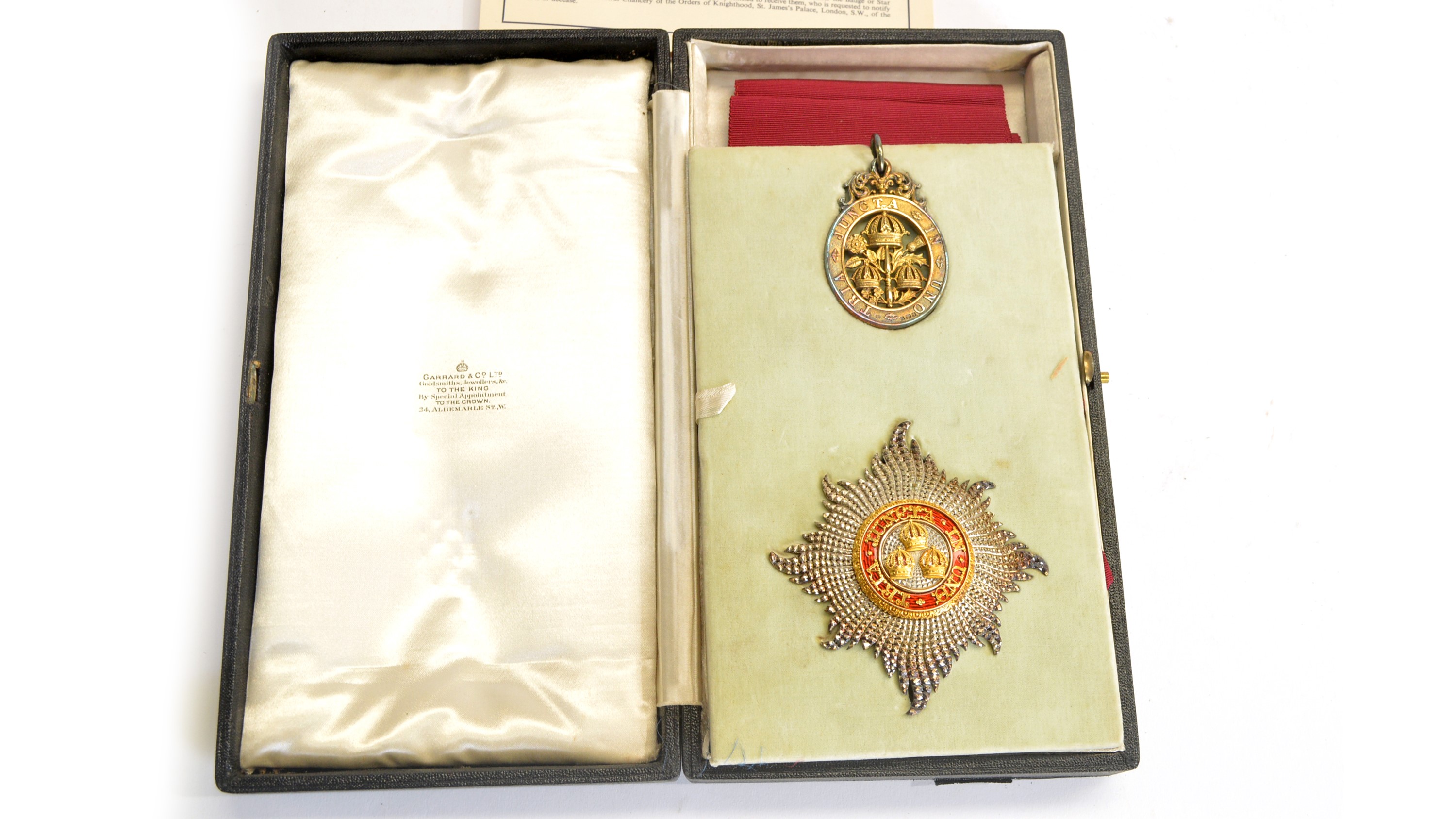
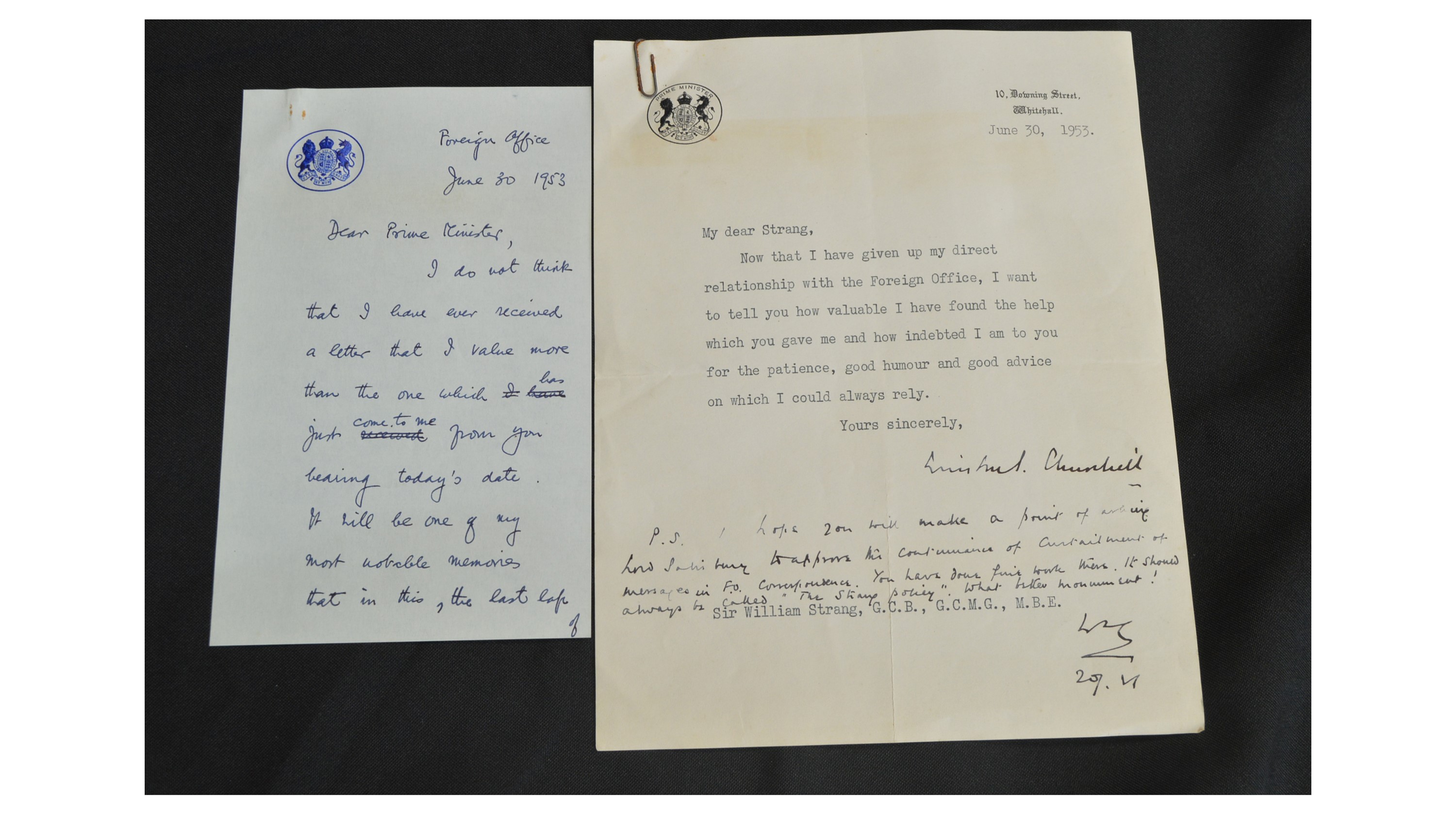
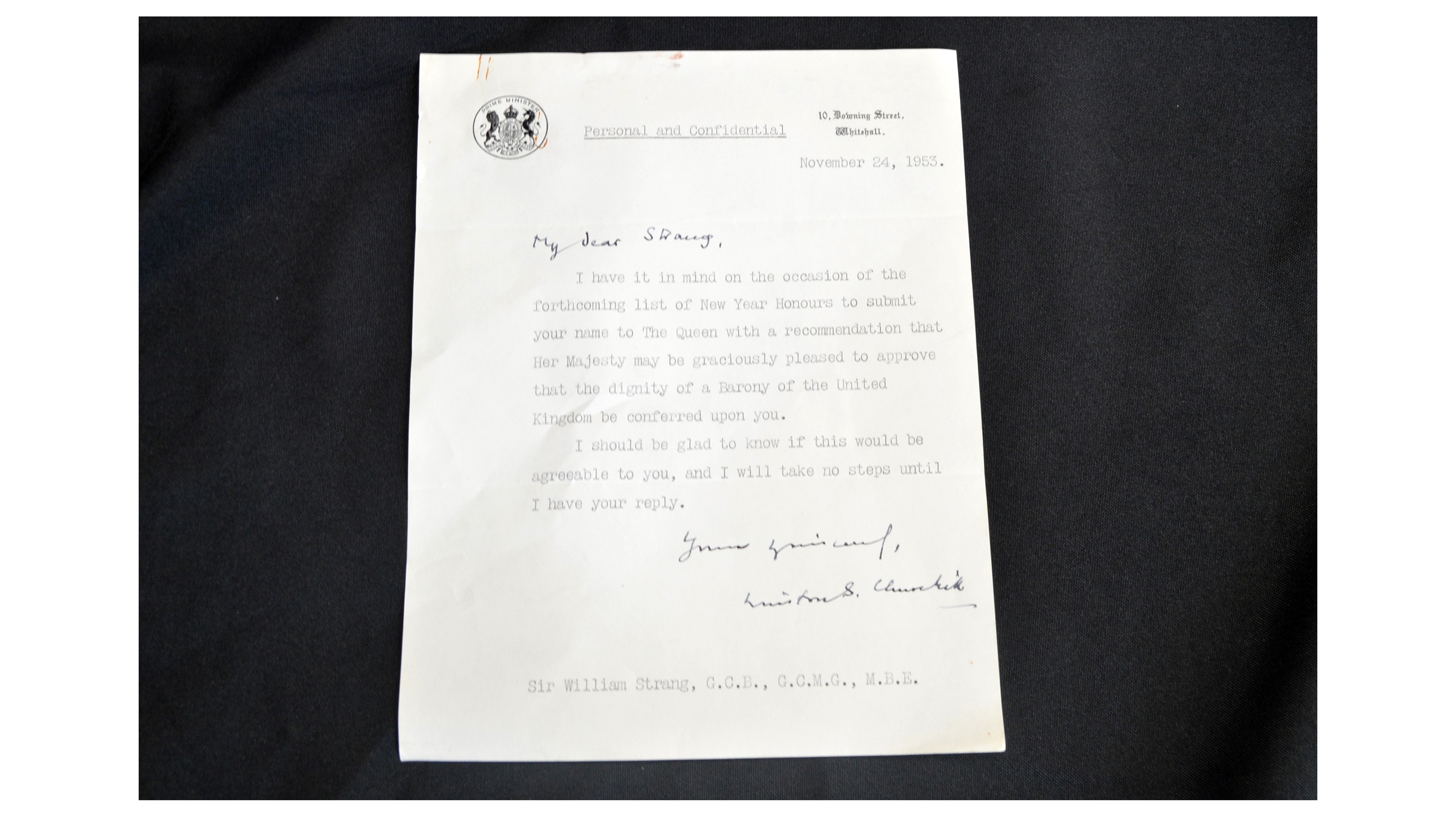
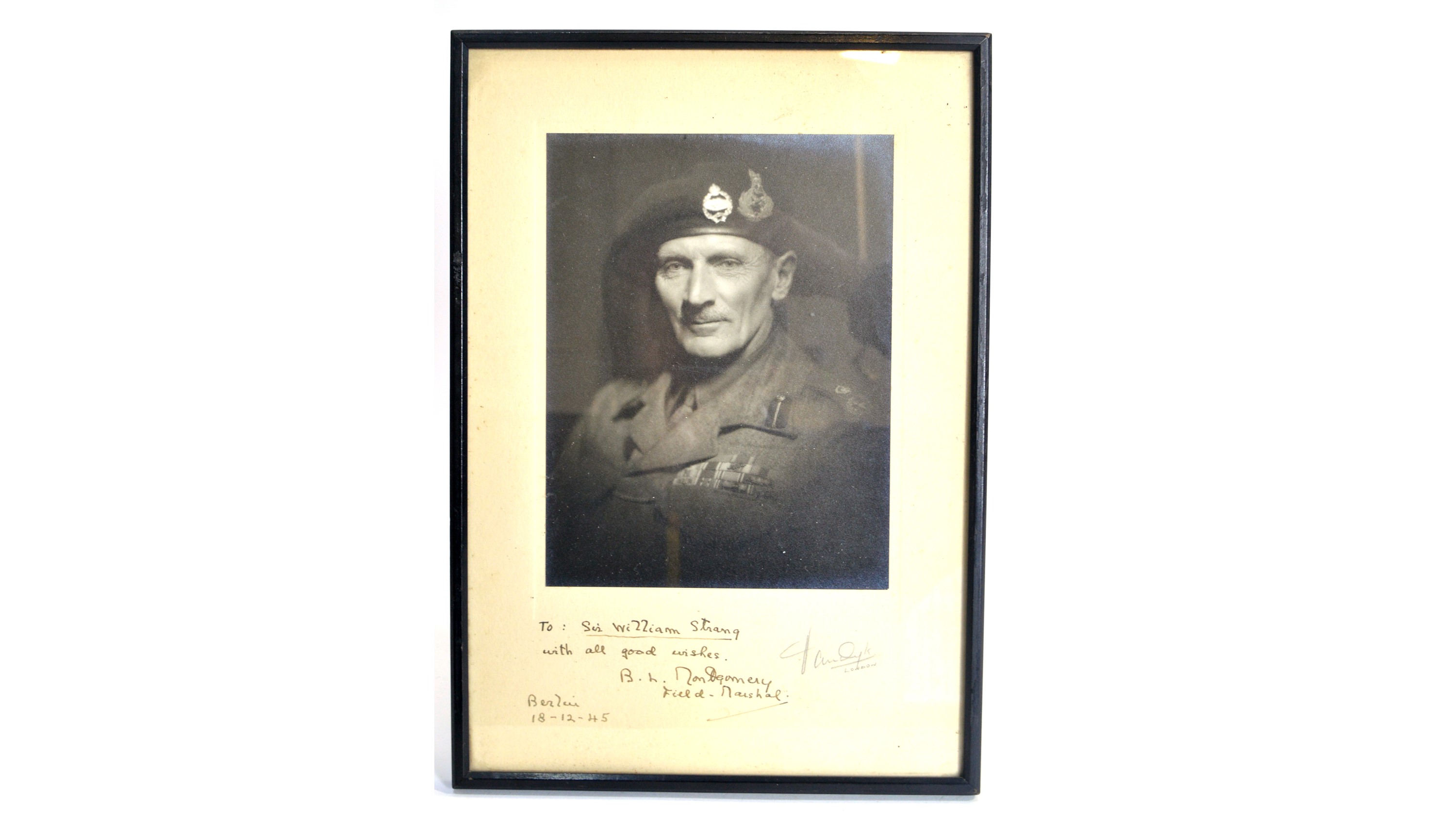
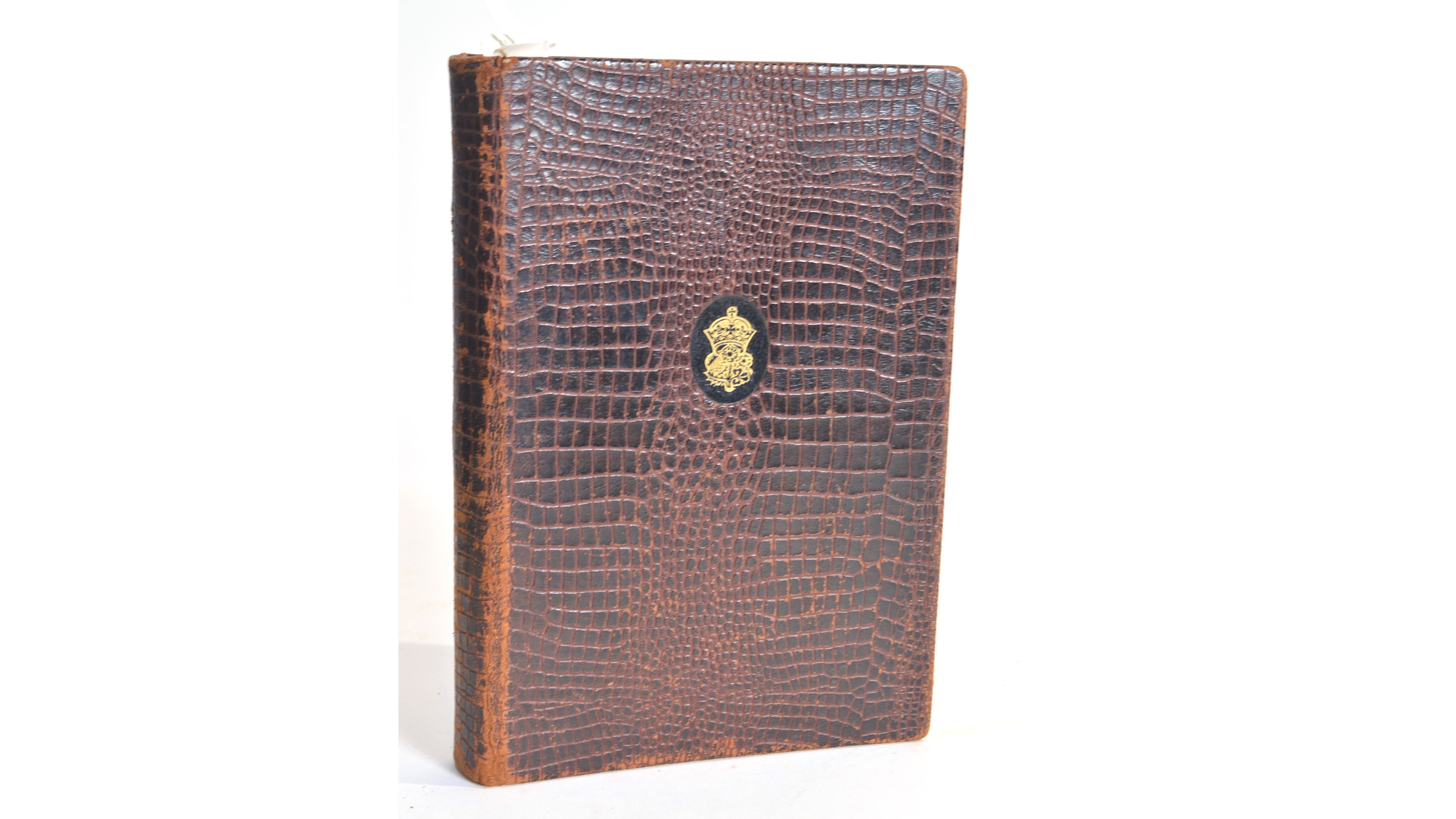
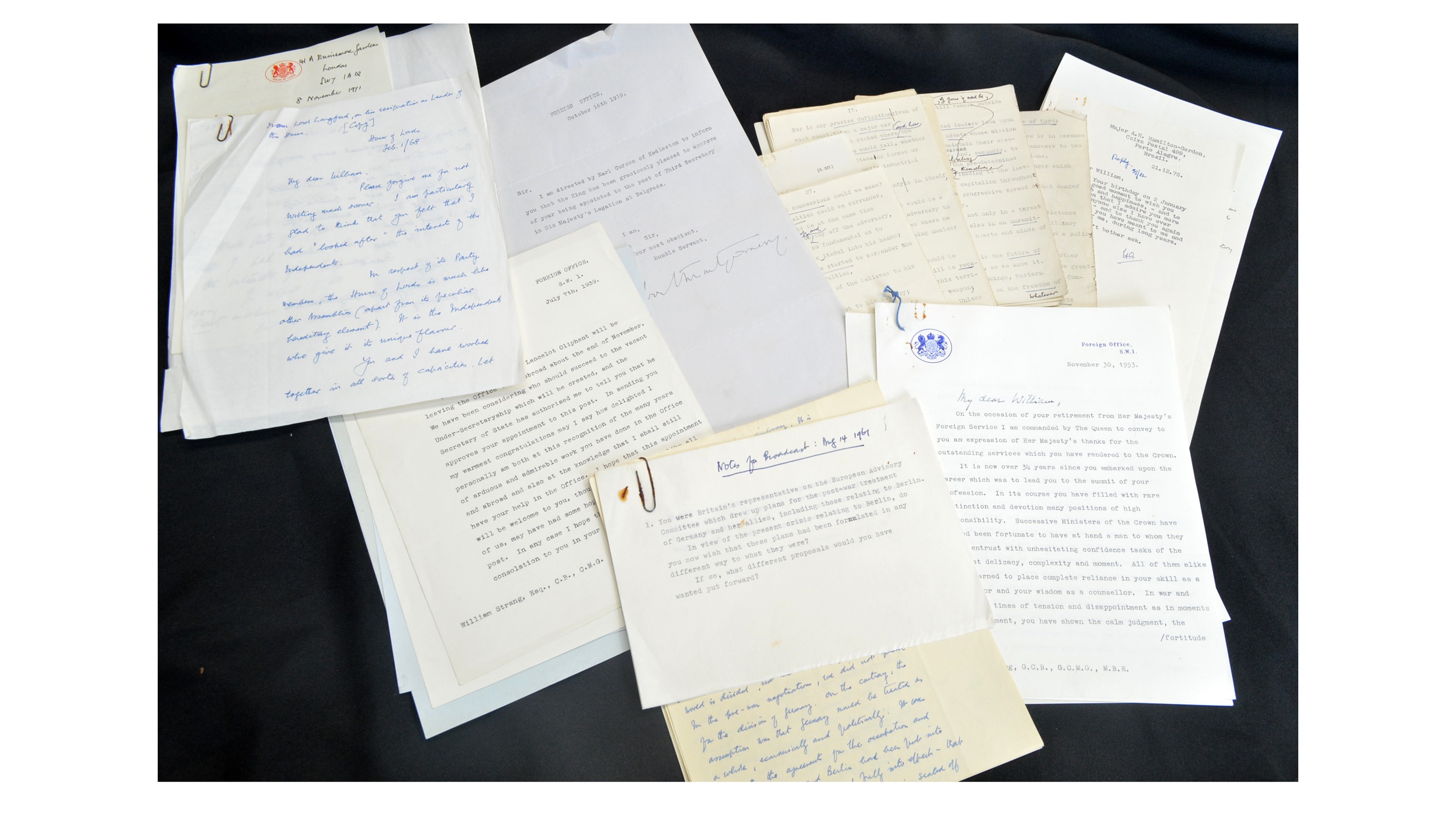




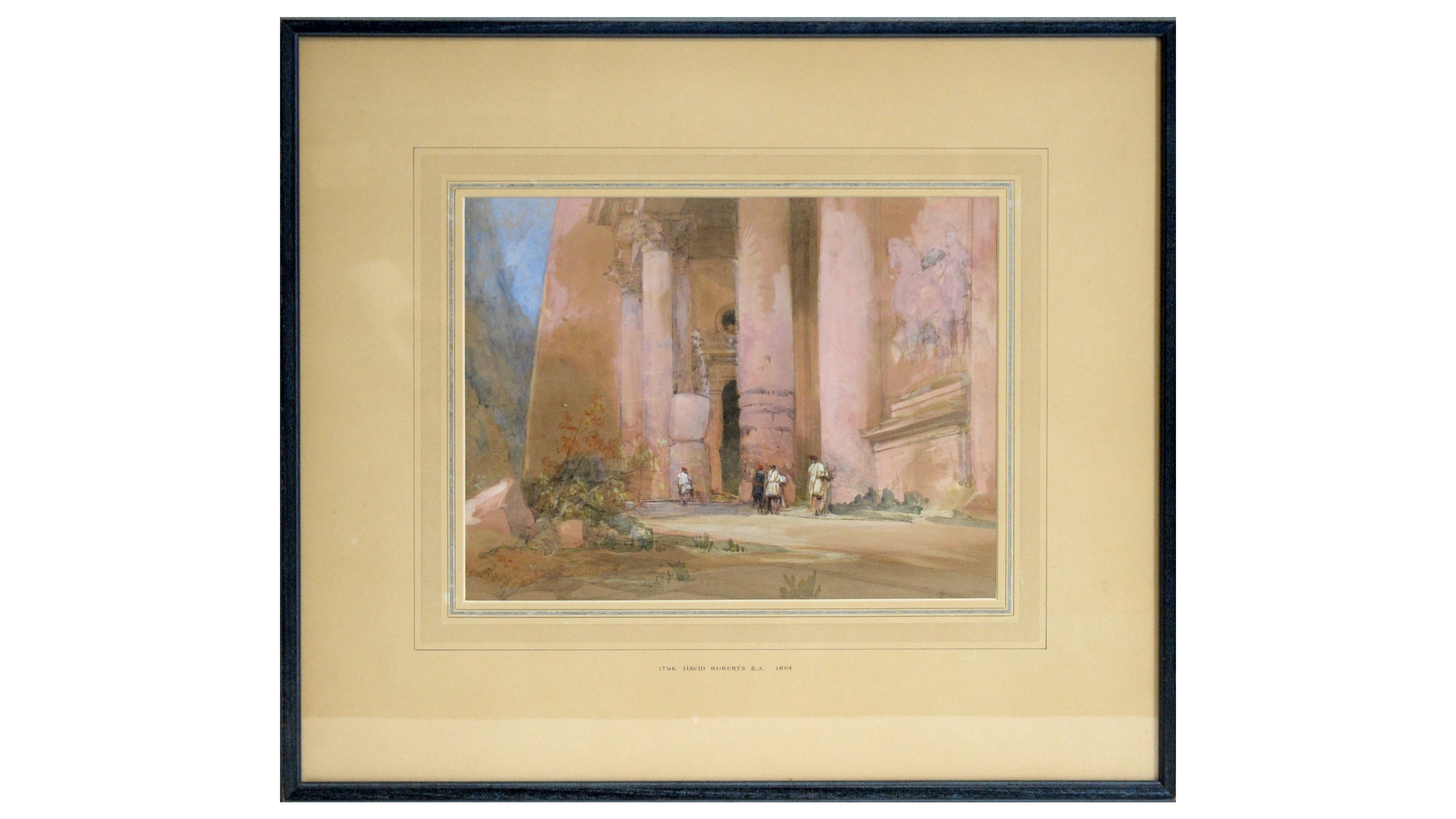
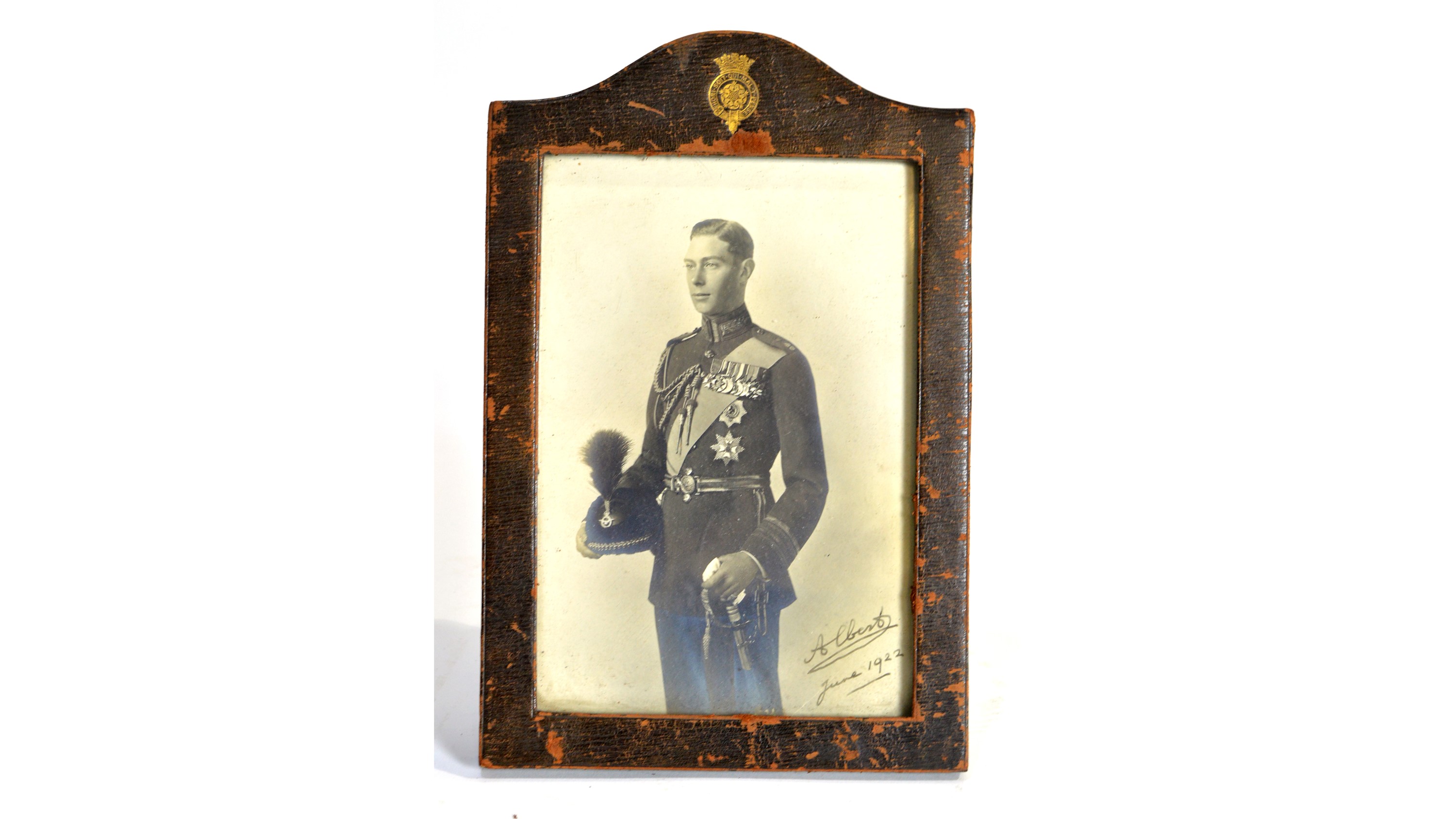

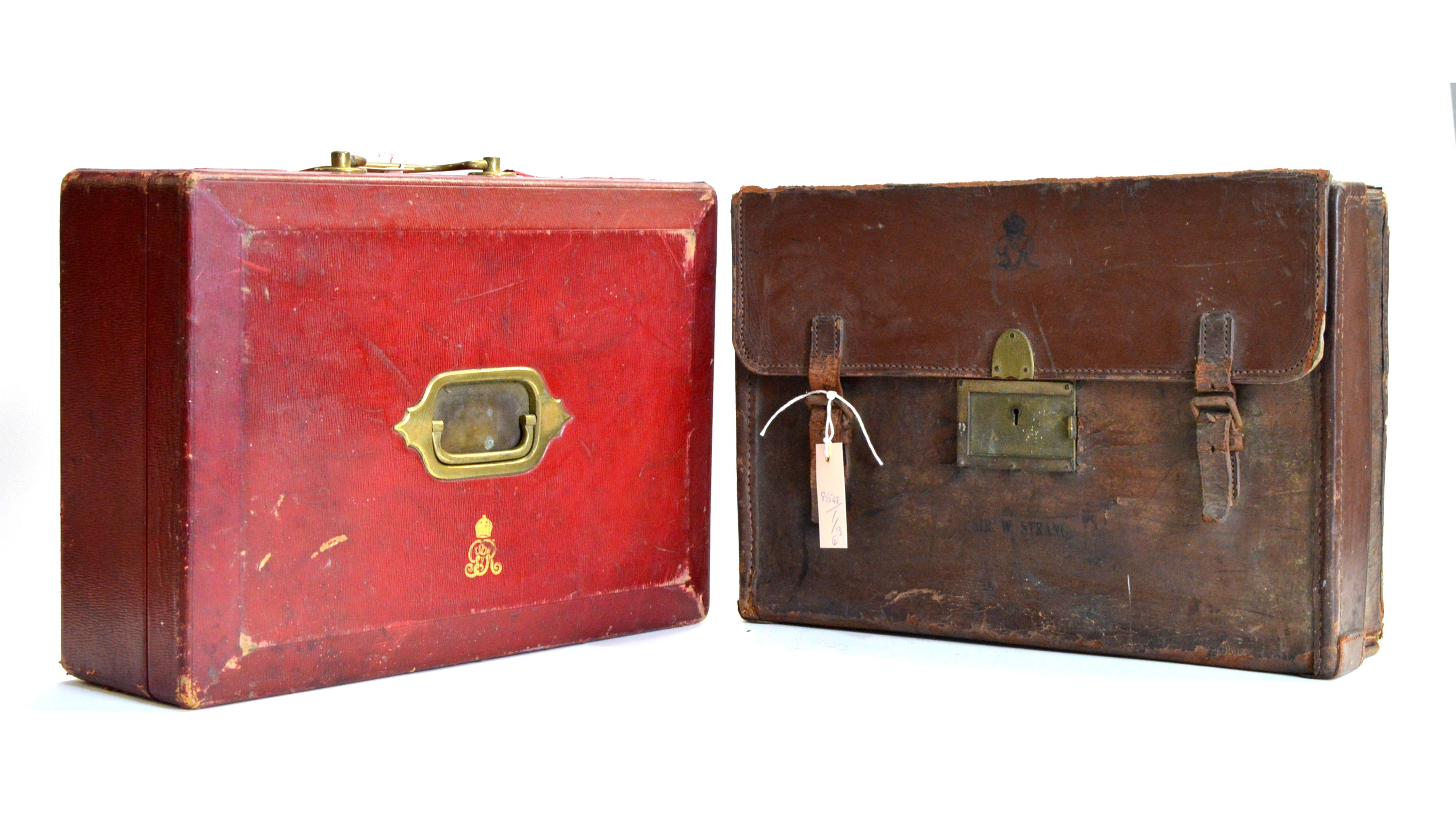

Testen Sie LotSearch und seine Premium-Features 7 Tage - ohne Kosten!
Lassen Sie sich automatisch über neue Objekte in kommenden Auktionen benachrichtigen.
Suchauftrag anlegen